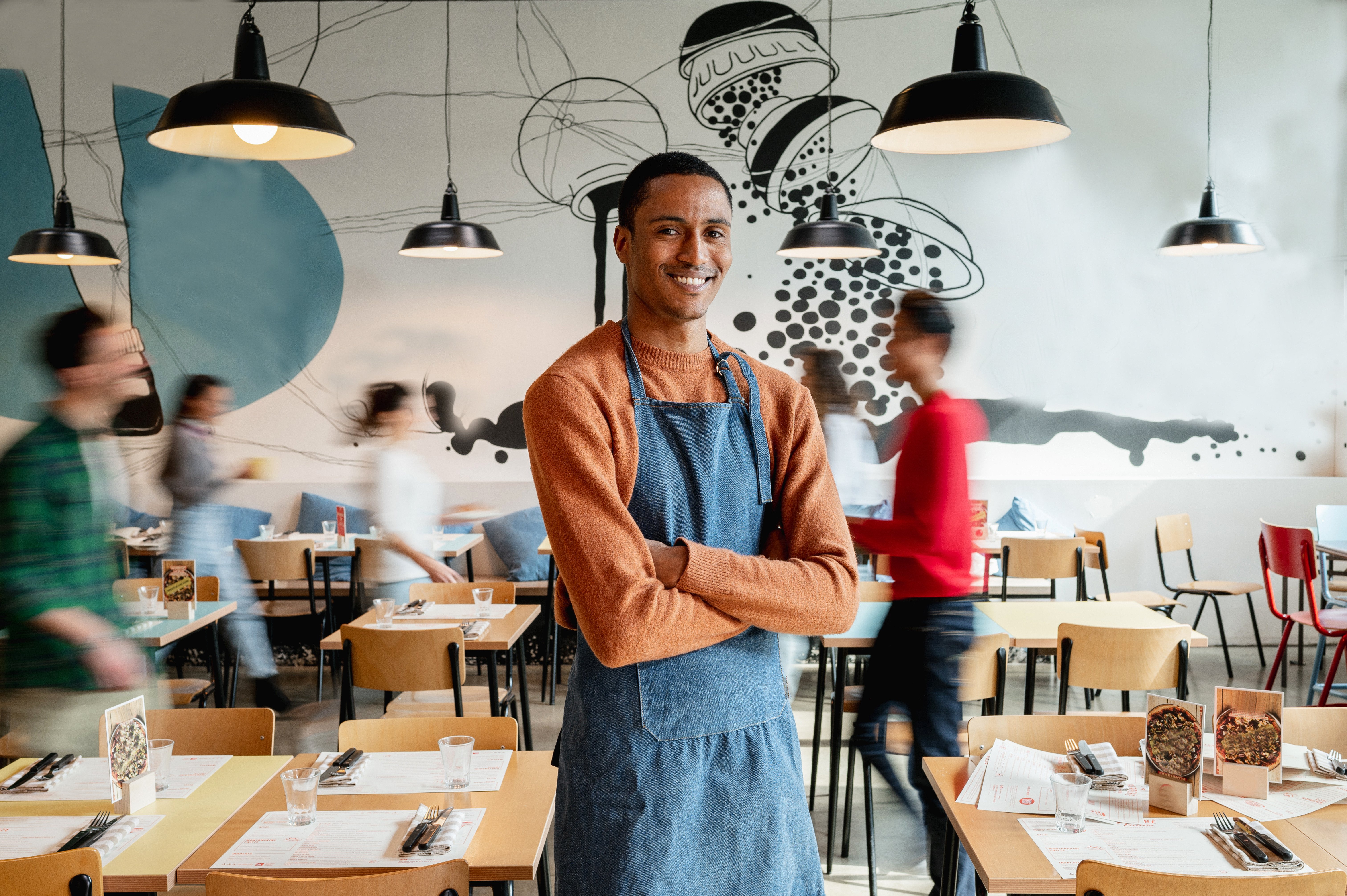Digital marketing for restaurants: A complete guide
marketing, social media , 4 November 2024
.jpeg)
In today's competitive hospitality industry, digital marketing for restaurants has become essential for attracting new diners, retaining loyal customers, and standing out from the crowd. With the rise of online ordering, social media engagement, and search engine visibility, restaurants must adopt effective strategies that create meaningful connections with their audience.
Whether you're just starting or refining your strategy, this guide provides the tools and insights to maximise your restaurant’s online presence, and, with platforms like First Table, make those empty tables a powerful marketing asset.
In this article:
.jpeg?width=6370&height=4255&name=AdobeStock_449175517%20(1).jpeg)
The basics of digital marketing for restaurants
Before diving into tactics and tools, it’s important to understand what digital marketing for restaurants entails. At its core, it uses online platforms like social media, email, and websites to attract diners and drive bookings. A strong digital strategy can transform a restaurant’s online presence, making it easier to build a loyal customer base and ensure sustainable growth.
Whether you’re looking to promote a new menu or drive off-peak bookings, a well-structured marketing plan helps you meet your business goals. By focusing on targeted efforts—such as social media marketing for restaurants—you can attract the right crowd, engage with existing customers, and convert casual diners into regulars. For example, at First Table, we send millions of emails weekly to promote new restaurant launches, menus and seasons for our restaurant partners — driving significant traffic to their booking pages.

Setting up your digital marketing strategy
A winning strategy doesn't happen overnight. To build a plan that works, start with these key steps:
- Identify your audience and unique value: The first step is to define who your ideal customer is. Are they families, foodies, or corporate professionals? Knowing this allows you to shape your message and channels effectively. Highlight what makes your restaurant unique. Whether it’s your focus on sustainability, a secret recipe, or live entertainment. For example, many of First Table's restaurant partners focus on attracting new customers during off-peak hours — and offer incentives that create excitement and buzz.
- Optimise your website for search engines: Make your website user-friendly, fast-loading, and SEO-optimised. Use the right keywords and focus on localising your content to boost visibility on search engines like Google. For instance, instead of simply saying "Italian restaurant," use phrases like "authentic Italian restaurant in Sydney" or "best pasta in Surry Hills." This helps search engines identify your location, making it easier for locals to find you. Ensure your location, contact information, and menus are easy to access. Additionally, feature a reservation tool or call-to-action button prominently to encourage direct bookings.
- Build a strong social media presence: Social media marketing for restaurants is one of the most effective ways to connect with diners. Platforms like Instagram, Facebook, and TikTok let you engage with your audience through photos, videos, and stories. Use these platforms to showcase your dishes, promote special offers, and share behind-the-scenes moments. Engage with followers by responding to comments and reposting user-generated content to build loyalty. First Table also uses tools like Instagram Stories and giveaways to increase engagement and expand reach.
- Create email campaigns for engagement: Email marketing lets you stay in touch with customers and promote exclusive offers. Collect emails through loyalty programs or online bookings and use personalised emails to share promotions, menu updates, and events. 70% of millennials identify email as their preferred means of business communication (source: Campaign Monitor). At First Table, we’ve seen firsthand how email drives engagement, with our weekly newsletters and personalised campaigns generating thousands of bookings across partner restaurants. Consistent communication through email helps maintain top-of-mind awareness and encourages repeat visits.
- Use paid advertising to drive traffic: Platforms like Google Ads and Facebook Ads can help attract customers to your restaurant. With targeted advertising, you can promote special deals, seasonal menus, or events to potential diners in your local area.

Essential digital marketing tools for restaurants
Successfully marketing restaurants requires the right tools to manage campaigns efficiently. Here are some that First Table recommends to streamline your restaurant’s marketing efforts:
1. Reservation and booking systems: Using platforms like ResDiary, Now Book It or Seven Rooms makes it easy for customers to book tables online, improving the user experience. Integrate these platforms with your website and social media pages for seamless booking.
2. Social media scheduling tools: Tools like Hootsuite, Sked or Later help you schedule posts in advance, track engagement, and stay consistent with your restaurant marketing ideas. This saves time and ensures your brand stays active across multiple platforms. At First Table, we use scheduling tools to plan giveaways and seasonal campaigns, giving our partners extra visibility during key dining periods.
3. Email marketing platforms: Mailchimp and HubSpot are popular email marketing tools that enable personalised communication with your audience. Use these platforms to build segmented email lists and send automated campaigns based on customer behaviour.
4. Analytics tools: Google Analytics helps track website performance, giving you insights into visitor behaviour, popular pages, and conversion rates. For social media, tools like Meta Business Suite provide engagement metrics to refine your social media marketing for restaurant strategy.
5. Customer relationship management (CRM) systems: A CRM system like Hubspot or Salesforce allows you to manage interactions with customers and track their preferences, helping you build stronger relationships. This is especially useful for targeted promotions and loyalty programs. Many First Table partners use these systems to track customer preferences and send targeted promotions that build loyalty.
.jpeg?width=3732&height=2099&name=AdobeStock_427751805%20(1).jpeg)
Conclusion
In the evolving world of hospitality, mastering digital marketing for restaurants is essential to staying ahead. Platforms like First Table offer unique solutions to help restaurants maximise visibility, fill tables, and build loyal customer bases. Whether you focus on social media marketing for restaurants, email campaigns, or paid advertising, each strategy plays a role in keeping your venue vibrant. Start crafting your digital marketing plan today and watch your business thrive in the digital landscape.
